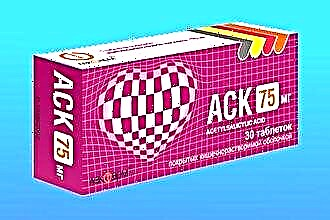A cough while lying down can be triggered by natural body reactions and various diseases. If the spasm is uncomfortable, lasts a long time, does not bring relief and interferes with sleep at night, you should immediately consult a doctor. Such a violation may indicate the development of serious pathologies. It is not the symptom itself that needs to be treated, but the ailment that provoked it.
Why does a spasm appear
 Lying cough may be due to the body's normal response to external stimuli. Throughout the day, we breathe in dust, small particles of debris and other foreign bodies along with the air, from which the respiratory tract must be emptied. Together with the phlegm from the lungs and bronchi, all the "garbage" comes out, and the mucus also contains special substances that protect the organs from viruses and bacteria.
Lying cough may be due to the body's normal response to external stimuli. Throughout the day, we breathe in dust, small particles of debris and other foreign bodies along with the air, from which the respiratory tract must be emptied. Together with the phlegm from the lungs and bronchi, all the "garbage" comes out, and the mucus also contains special substances that protect the organs from viruses and bacteria.
Coughing in a supine position can intensify due to stagnation of mucus in the upper or lower respiratory tract. If phlegm accumulates in the nose, then lying on the back, a person may feel bronchospasm. This is due to the flow of secretions into the pharynx, they clog it and irritate the cough receptors. In such cases, there is a spasmodic dry cough.
The accumulation of phlegm in the lungs and bronchi can also cause an increase in coughing at night. When a person is in an upright position, the normal blood supply to the respiratory system is carried out, when he lies down, it is disrupted.
As a result, the mucous membranes cannot normally separate the fluid and remove it from the body. A spasm that intensifies in a horizontal position is accompanied by profuse mucus.
Reasons for violation
 The cough is worse when lying down for various reasons. It can be a common cold, accompanied by the accumulation and discharge of phlegm from the respiratory system, and more serious diseases that are completely unrelated to the bronchi and lungs.
The cough is worse when lying down for various reasons. It can be a common cold, accompanied by the accumulation and discharge of phlegm from the respiratory system, and more serious diseases that are completely unrelated to the bronchi and lungs.
Consider why an adult may have a spasm when he is in a horizontal position.
- Reaction to an unfavorable environment. Residents of metropolitan areas, employees of hazardous enterprises and people who spend a lot of time in dusty rooms often experience a severe cough while lying down. This is due to the fact that the bronchi cannot normally remove foreign bodies from the respiratory tract.
- Asthma. A paroxysmal dry cough occurs at night. With bronchial asthma, there is a strong separation of sputum, in the supine position it accumulates in the airways and clogs them, which leads to spasm.
- Remission stage in chronic bronchitis and tracheitis. Without an exacerbation, these diseases are accompanied by an episodic short cough when a person lies on their back or on their side. The spasm passes rather quickly, a characteristic feature of the disorder is that the patient does not see dreams.
- Mild pneumonia. Quite often, pneumonia is not accompanied by a hacking cough and fever. This disorder can be manifested by a slight, but prolonged night coughing. The phlegm produced in the lungs clogs the airways, leading to cramping. Other symptoms, such as upper body aches and chest pain, may also occur.
 Tobacco smoking and alcohol abuse. Tobacco smoke and alcoholic beverages are strong irritants that act on the cough receptors in the throat. They have a detrimental effect on the respiratory tract throughout the day, and in the evening they are especially active. In an adult, such a violation is treated only by giving up bad habits.
Tobacco smoking and alcohol abuse. Tobacco smoke and alcoholic beverages are strong irritants that act on the cough receptors in the throat. They have a detrimental effect on the respiratory tract throughout the day, and in the evening they are especially active. In an adult, such a violation is treated only by giving up bad habits.- Allergic reaction. You can find out why the cough gets worse at night by checking things in your room. Often, patients are allergic to dust that accumulates in bed, to the fillers of blankets and pillows.
Prophylaxis
Infectious diseases of the respiratory tract, which lead to an exacerbation of cough in the supine position, must be treated according to the scheme prescribed by the doctor. If the spasm does not bring relief and is not accompanied by the production of phlegm, it is recommended to use mucolytics before bedtime, they thin the phlegm.
When the violation causes excitation of the nerve endings, that is, it makes sense to take antitussives, they block the parts of the brain that are responsible for the cough reflex. When mucus is secreted, the use of expectorant drugs will be relevant.
Such measures will also help:
 drinking plenty of warm drinks throughout the day;
drinking plenty of warm drinks throughout the day;- drinking a glass of warm milk before bedtime or sucking a teaspoon of honey;
- steam inhalation in the absence of increased body temperature;
- airing the room;
- wet cleaning 2 times a day;
- provision of humidity 60-70% and air temperature 20-22ᵒC in the room;
- elimination of all items that collect dust;
- the use of aroma lamps with medicinal essential oils;
- protecting the patient from strong odors, tobacco smoke;
- regular walks in the fresh air in the absence of fever.
How not to harm
It is impossible to use any drugs to suppress the cough reflex without a doctor's recommendation. This is especially true for antitussive syrups and tablets. They include narcotic substances, and such drugs are prescribed with extreme caution.
Carrying out warming procedures and the use of folk remedies also need to be agreed with the doctor, since some components can cause allergies.
Particular attention should be paid to the elimination of nocturnal cough in children. If your baby feels a spasm at night, call an ambulance immediately. A severe cough can cause swelling of the vocal cords and suffocation if not treated promptly. Also, young patients are tested for all medicines and folk remedies before starting therapy.
In conclusion
 The lying position can enhance the cough reflex in absolutely healthy people, but most often the violation is observed in the presence of serious pathologies in the body. In order to establish the cause of the symptom in time, you need to see a doctor.
The lying position can enhance the cough reflex in absolutely healthy people, but most often the violation is observed in the presence of serious pathologies in the body. In order to establish the cause of the symptom in time, you need to see a doctor.
It is impossible to treat the cough itself, it can only be alleviated with the help of medicines, folk remedies and special procedures. Bronchospasm recedes completely only if the patient gets rid of the disease that provoked him.

 Tobacco smoking and alcohol abuse. Tobacco smoke and alcoholic beverages are strong irritants that act on the cough receptors in the throat. They have a detrimental effect on the respiratory tract throughout the day, and in the evening they are especially active. In an adult, such a violation is treated only by giving up bad habits.
Tobacco smoking and alcohol abuse. Tobacco smoke and alcoholic beverages are strong irritants that act on the cough receptors in the throat. They have a detrimental effect on the respiratory tract throughout the day, and in the evening they are especially active. In an adult, such a violation is treated only by giving up bad habits. drinking plenty of warm drinks throughout the day;
drinking plenty of warm drinks throughout the day;

